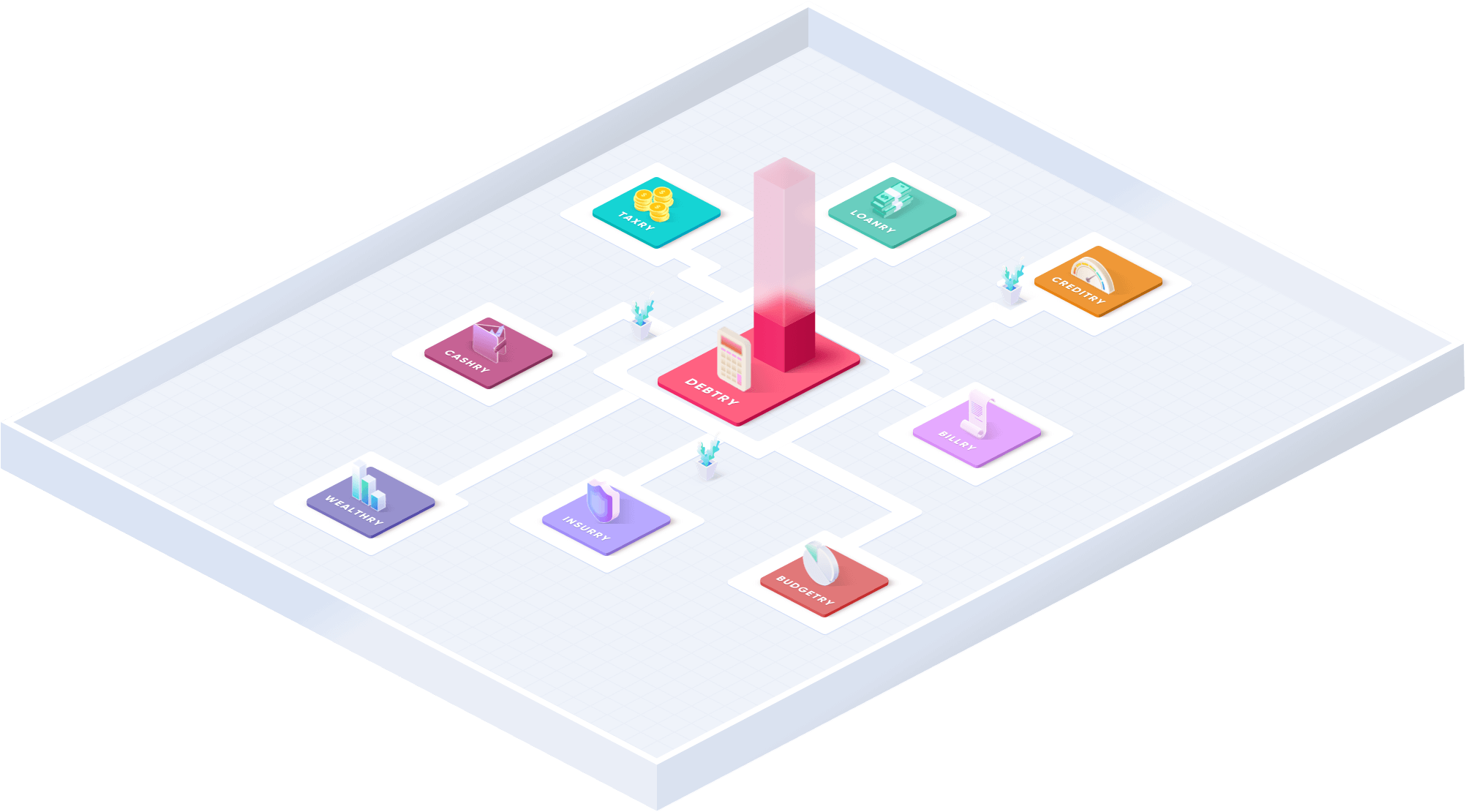Personal Debt


Beecher was an evangelist in the mid-19th century, when men of the cloth didn’t mince words. The 1800s were harsh times compared to what most of us consider normal today. There were no protections or supports in place for those overwhelmed by debt. The most common solution was to have the debtor thrown into prison until they or someone who cared about them anted up the cash or until they died.
Needless to say, this approach was about discouraging delinquency more than actually recouping losses. Turns out once someone was in debtor’s prison, their opportunities to earn an honest income were rather… limited.
Two centuries later, the plight of citizens drowning in debt is somewhat less extreme. There are legal protections in place to prevent purely punitive measures, and most states have services specifically designed to help individuals resolve personal debt and receive debt management counseling. The function of debt relief in the 21st century isn’t to punish you for debt or extract it from your loved ones. Instead, the goal is to make a pathway through paying down debt by finding compromises and implementing strategies.
In other words, the enlightened approach isn’t to lock you up so much as to help you gradually set yourself free.
However thankful we may be for a more modern approach to debt repayment, emotionally it sometimes still feels like we’re in that basement prison. Our physical bodies may go to work (or stay sheltered at home), but our insides have their hands on the bars of that tiny window as we struggle to catch the attention of passers-by. Personal debt carries a cost beyond the dollars and cents involved. Sometimes, before we can make meaningful progress towards debt elimination, we must first be honest about the emotional, psychological, or – some would say – spiritual cost of overwhelming personal debt.
For better or worse in modern America, we judge one another at least partly by our finances. There are few stories more fundamentally American than the “Horatio Alger” narrative. A scrappy young man (today we’d add “or young lady”) from difficult circumstances plugs away at the American Dream. He works hard despite constant obstacles and refuses to resort to dishonesty or other shenanigans. Eventually, opportunity emerges out of nowhere and his industriousness and clean living pay off.
It’s a theme we’ll find in everything from Little Orphan Annie to Hunger Games, and it’s not limited to fiction. Woven deep into the American psyche is what’s sometimes called the “Protestant Work Ethic” – the conviction that hard work, frugal spending, and clean living carry spiritual weight as much as they bring about financial stability. If you’re struggling, or sick, or even just unemployed, well… maybe you’re just not trying hard enough.
In other words, we live in a culture in which financial success doesn’t just broadcast the message that you’re good with money; it broadcasts the message that you’re good, period. Financially, ethically, spiritually, inwardly, and outwardly better than those with less than you. We know in our minds that it doesn’t actually work that way, but cultural norms and convictions are rarely constrained by logical thought.
If we want to gain true control of our personal debt, we have to start by rejecting such false narratives.
We’re also on the verge of releasing our re-imagined debt tracker app as part of a series of personal and small business financial tools powerful enough to adapt to your specific circumstances, but streamlined and intuitive enough that you can begin benefiting from them right away.
No more guessing what happens if you make this minimum payment here in order to focus on that debt over there. Plug in the numbers and see which makes the most sense. Pinpoint on the calendar when you’ll have identified debts eliminated and begin focusing on others. Estimate your total debt, credit score, or purchasing power in six months or six years based on your decisions today – all with no more effort than it takes to check social media or “clear the bar” on your fitness tracker.
Knowledge is power, and today’s debt tracker apps bring that power to your fingertips.
The best debt tracker doesn’t ignore your debt. It doesn’t even tell you what to do. The ideal debt tracker app arms you with information, insight, options, and connections to make the right decisions for you and those in your care. It acts as a tool for taking control of and paying down debt.

There’s a reason it’s called “debt management counseling” and not “debt management advice.” The cost of debt isn’t just what it does to your credit score, your bank account, or your opportunities, although each of those things are important. The cost of debt is what it does to your belief in yourself and your ability to move forward.
Changing how we approach debt means accepting and addressing some of the mindsets that got is where we are today, as well as choosing the mindsets that can get us where we want to go. This isn’t our effort to make things touch-feely; that’s the reality of decades of financial counseling expertise and assistance. It’s why we do what we do at Debtry.
Abbott was an author of children’s books around the same time Beecher was preaching. Abbott’s approach is a bit more balanced than many of his contemporaries The problem isn’t responsibility itself, he suggests, but responsibility we can’t fulfill. The curse isn’t debt itself, but debt we can’t control.
Whatever the realities of the 19th century, it’s nearly impossible in the 21st century to live the American Dream without some degree of responsible debt. It’s all very well to speak of “debt free living,” and more power to you if you pull it off, but very few of us can buy a home without taking out a mortgage.
Most of us need a vehicle to drive before we can earn enough to make the payments. Even credit cards have useful functions. They allow us to make online purchases in relative security, to book hotel rooms, to take guests out to dinner without counting up the change jar, and more. Responsible credit card use gives us financial flexibility while still offering a degree of protection against errors or exploitation.
Maybe there’s more to being “debt free” than never having any debt of any kind. Maybe for many of us, the best form of debt relief is learning how to be in charge of our debt. Maybe our goal should be to break free of “consumer debt” – a term suggesting we’re primarily tools of mass marketing, buying and using and discarding until we can no longer afford to function.

Still, Beecher’s description of debt as an enormous spiderweb isn’t entirely wrong. Like so many things – eating, drinking, laughing, even being honest – the line between “enough” and “too much” can be difficult to discern and often races by before we realize we’ve gone too far. Suddenly, we’re in personal debt over our heads. For some reason, the more we spend paying down debt, the more debt we seem to have left to pay. You don’t have to stay in the web. Debt may be a giant spider, but it’s one over which you have more power than you think. And we can help you turn things around. Debtry can help you develop a plan to reclaim your financial independence. It can get better. We promise. It begins by accepting the most important debt advice you’ll ever read. It has three parts but it’s all part of one reality, and it’s foundational to any real progress towards debt elimination or personal debt management.
You are not your credit score. You are not your credit history. You are not your bank account. You are not your tax returns. These things reflect something about you, but they do not define you – or, at least, they shouldn’t. So don’t let them.
You may have messed up. You may have spent too much, bought into modern consumerism, let yourself become a slave to short-term thinking, etc. Maybe you were immature, or irresponsible, our somehow “bad.” Let’s confess that we’ve blown it and we need help getting better. Then focus on the next step forward, not the ones you wish you could change behind you.
Disasters, medical bills, divorce, the economy, the Covid-19 pandemic, or any number of other things may have played a role. They may be the primary or only cause of the situation you’re in, and it’s not fair and you feel powerless and it’s all just horrible. Take a lesson from the cross-stitching in every grandma’s restroom when you were young – “God grant me the serenity to accept the things I cannot change, the courage to change the things I can, and the wisdom to know the difference.” Maybe we can’t control all of it, but we can control some of it. Maybe most of it. We’re darn sure going to control the parts we can.
What can Debtry do for you? Nothing. If we do it for you, it won’t last. We could put a hit out on every debt collector that comes to your door and rig the lottery so you’re instantly debt free and it wouldn’t change where you’d be ten years from now. What we can do for you isn’t the right question.
Taking control of personal debt begins with educating yourself about debt. Don’t worry, we’re not going to ask you to sign up for a course or purchase a curriculum or anything. Debtry and the rest of the Goalry family are filled with practical, no-nonsense insights and solutions for paying down debt and keeping debt under control. There are no shortcuts or gimmicks that can magically fix everything, but there are better and worse ways to approach debt repayment, and we’ll help you work through them.
We’ll share expertise and encouragement each week on everything from how to pay off debt fast to how to save on utilities and subscriptions without sacrificing essentials. We’ll talk about different types of debt and arm you with information about everything from different ways interest rates are computed to essential first steps when you’re drowning in debt. We’ll explain the “Snowball Method,” the “Avalanche Method,” and other expert advice on how to pay off debt fast.
In some circumstances, the best solution might involve a debt consolidation loan of some sort. These aren’t magical either, but they can be powerful tools for taking control of overwhelming monthly debt. We can help you weight the pros and cons of these as well, and connect you with reputable lenders if you decide to go that direction.
We’ll never become so enamored with our own vocabularies that we talk over you instead of to you. Our vision is your success – that means keeping things as real as possible, at every step. Like our blogs, our videos are in plain, simple English and focus on real challenges normal people face every day. Taking more effective control of your personal debt may take time and there may be moments in which you struggle. But it doesn’t have to be as hard as it often seems, and you don’t have to do it alone.

The best way to pay off debt requires making and using a household budget. (This is not something many of us want to hear.) Until you know where your money is actually going, you can’t effectively improve your habits or change your approach. A household budget isn’t about anyone else telling you what to do. It’s about being honest with yourself. It’s about clarity and precision and facing some hard truths about your own priorities, no matter what you thought they were.
The best way to pay off debt requires cutting your spending. Increasing your income doesn’t hurt, but it’s not enough by itself. Most consumer debt in the United States is not the result of our inability to make enough to cover the essentials (some is, but that’s a different problem requiring different solutions). Most of our personal debt in the 21st century is rooted in carelessness and consumer immaturity.
The best way to pay off debt involves finding a sustainable balance between enjoying life and debt free living. They’re not mutually exclusive. They’re not even opposites. Taking more effective control of your personal debt and personal finances actually feels pretty good once you’ve established some momentum. Like eating better, realistic exercise, reading more and binge-watching less, adulting carries some burdens but also numerous rewards.
The best way to pay off debt starts by understanding the different types of debt, the true cost of debt, and resetting your energies towards debt elimination or dramatic debt reduction. Take advantage of tips for paying down debt, but realize they’re a tool – not a cure. Surround yourself with people who will encourage and support you, and use available resources to educate yourself about consumer debt and related issues.
Contact us today and let’s talk about what we can do for you. Accessing Debtry gives you one unified log-in to the entire Goalry Unified Finance “Mall,” or you can decide to simply stick with us here for the time being. Either way is fine.
We’re not here to tell you what to dream. We do, however, have some ideas on how you can start making those dreams more possible.